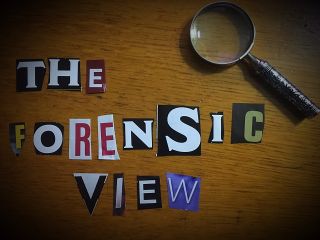Forensic Psychology
Killing Socrates
Forensic psychology in a case of judicial murder.
Posted March 4, 2024 Reviewed by Monica Vilhauer
Key points
- The infamous ancient Greek trial of Socrates highlights important aspects of forensic psychology.
- Both cognitive and affective psychological processes can contribute to inconsistency in judicial reasoning.
- An understanding of the relevant psychogical factors may reduce miscarriages of justice.

The influence of the philosopher Socrates, especially as depicted in Plato’s dialogues, is virtually impossible to overestimate in Western intellectual life. His thoughts were foundational for Western philosophy.
Yet, he was essentially the victim of judicial murder.
Socrates, after a lifetime of asking people what they knew, and frequently finding that they knew very little, was required to answer legal charges preferred by three enormously ambitious men. The charges were that he had corrupted the youth of Athens, that he disbelieved in the accepted Greek gods, and that he had introduced new gods to the city.
It has been argued that the charges were legal, and perhaps justified from some perspectives (e.g., Cartledge, 2009; Waterfield, 2009). Yet at his trial, Socrates provided a logical proof of his belief in the local gods (Plato, 1914 ed.); new gods were introduced all the time in Athens (Hughes, 2011); and all Socrates had really done to the local young men was to teach them to think and speak logically—perhaps an irritating thing for those whose incomes depended on other peoples’ gullibility, but hardly a capital crime.
So of what, exactly, was Socrates legitimately guilty?
Basically, he was irritating.
When the noble Meno was instructing Socrates on Virtue, Meno told him that Virtue involved grabbing gold and silver. Socrates corrected him, with logical precision. Meno, and his defender Anytus, were not happy.
When the great speaker Protagoras created ludicrous arguments that are still funny today, Socrates corrected him. Protagoras wasn’t trying to be funny. He wasn’t happy.
And on it went. Over and over, Socrates kept contradicting important and pompous people; and they weren’t happy.
So, he was charged; and the trial began.
Ancient Athenian trials were bloated and perhaps chaotic affairs. Although the Archon officials convened the courts, official judges did not keep the trials on track; the judges were essentially the jurors themselves, and there were a hell of a lot of them. Most sources say there were 501 jurors in the mob that judged Socrates (e.g., Plato, 1914 ed.).
That word “mob” may be particularly well-chosen. Humans in groups, including mobs, may behave very differently than they would on their own (e.g., Sharps, 2022).
For one thing (e.g. Bandura, 1977), we tend to imitate and go along with those who are perceived as powerful, rewarded, and impressive. Socrates' accusers were well-dressed, impressive, and given to extravagant speech; not necessarily logical speech, but extravagant.
Socrates was none of these things. Personal appearance was not his strong suit, and he was given to complex utterances of cumulative complexity. The crowd preferred the glitter of his impressive accusers, and the relatively smooth and simple ease of their utterances, a Gestalt speech style requiring far less effort and concentration (e.g., Sharps, 2003, 2022).
Socrates’ disciplined approach to things was more reminiscent of Spartan thinking, in some ways, than of more florid Athenian ideas. Unfortunately, the Spartans were the hated enemy who had defeated Athens in the Peloponnesian War. Mental set, (e.g., Maier, 1931), essentially habits of mind, may have intruded here: we think this guy likes some Spartan ideas. Spartans are bad.
Granted, the Spartan associations were tenuous—why wouldn’t the crowd have examined them in a bit more detail? Well, for one thing, people tend to conform to each other’s ideas and opinions, so much so that we may not perceive even physical reality correctly, even when it’s right there in front of us (Asch, 1956).
As rhetoric becomes more inflamed, and a mob of jurors becomes increasingly unglued, this tendency toward conformity can become even more powerful. When jurors’ emotions are inflamed (for example, by the level of violence of a given crime) they are much less likely to notice logical flaws and mistakes in evidence (Sharps et al., 2013), such as those present in the florid speech of Socrates’ accusers.
Socrates didn’t do himself any favors. When he was finally convicted, he was required to propose a penalty for himself. He later proposed to pay a fine; but since he believed his philosophy had benefited Athens, he initially proposed that his “penalty” be free meals for life.
It’s likely he was being sarcastic, but if so he was joking in a very dangerous realm. Free meals for life were given to Olympic victors, which if anything were held in greater awe than Super Bowl champions of today. After a long, hot, crowded day, the jurors beheld this now-demonized man classifying himself among the elect.
The crowd went wild; and not in a good way.
Cognitive dissonance theory (e.g., Festinger et al., 1956) holds that if we have a great investment in something, we may act in overvaluation of it. The mob of jurors now had a great investment, based on social learning, conformity, Gestalt processing, and mental set, together with the cognitive dissonance caused by this long, hot, crowded day, all focused on Socrates. Their thinking was strongly influenced, and again, not in a good way.
A small majority voted for Socrates’ guilt. A substantially larger majority voted him the death penalty.
In other words, perhaps especially after the free meals thing, several dozen Athenian jurors voted to kill a man they had previously deemed innocent.
Socrates was required to drink fatal hemlock, after a few more philosophical conversations in his cell.
Socrates’ ideas, as presented by Plato and to a lesser extent by Xenophon, are essentially seminal to the history of Western thought; but there’s more to the story. The operation of known psychological principles, such as those discussed above in the trial of Socrates, should give our own legal systems significant pause. The same psychological principles that resulted in the judicial murder of Socrates are still operating in all of us today. The modern world has not changed the nature of the human brain. These principles still apply in the psychology of modern systems of criminal justice.
References
Asch, S.E. 1956. Studies of independence and conformity I: A minority of one against a unanimous majority. Psychological Monographs, 70 (9, Whole No. 416).
Bandura, A. 1977. Social Learning Theory. Upper Saddle River, NJ: Prentice-Hall.
Cartledge, P. 2009. Ancient Greek Political Thought in Practice. Cambridge UK: Cambridge University Press.
Festinger, L., Riecken, H., & Schachter, 1956 (2011 reprint). When Prophecy Fails. Blacksburg, VA: Wilder.
Hughes, B. 2011. The Hemlock Cup: Socrates, Athens, and the Seach for the Good Life. New York: Alfred A. Knopf.
Maier, N.H.F. 1931. Reasoning in humans II. The solution of a problem and its appearance in consciousness. Journal of Comparative Psychology, 12, 181-194.
Plato (tr. H.N. Fowler). 1914. Apology. Cambridge, MA: Loeb Classical Library, Harvard University Press.
Sharps, M.J. 2003. Aging, Representation, and Thought: Gestalt and Feature-Intensive Processing. Piscataway, NJ: Transaction.
Sharps, M.J. 2022. Processing Under Pressure: Stress, Memory, and Decision-Making in Law Enforcement (3rd ed.). Park City, Utah: Blue 360 Media.
Sharps, M.J., Herrera, M.R., and Price‐Sharps, J.L. 2013. Situationally equivocal eyewitness evidence and the violence of crimes. Journal of Investigative Psychology and Offender Profiling, 10, DOI: 10.1002/jip.1398.
Waterfield, R. 2009. Why Socrates Died: Dispelling the Myths. London: Faber and Faber.




